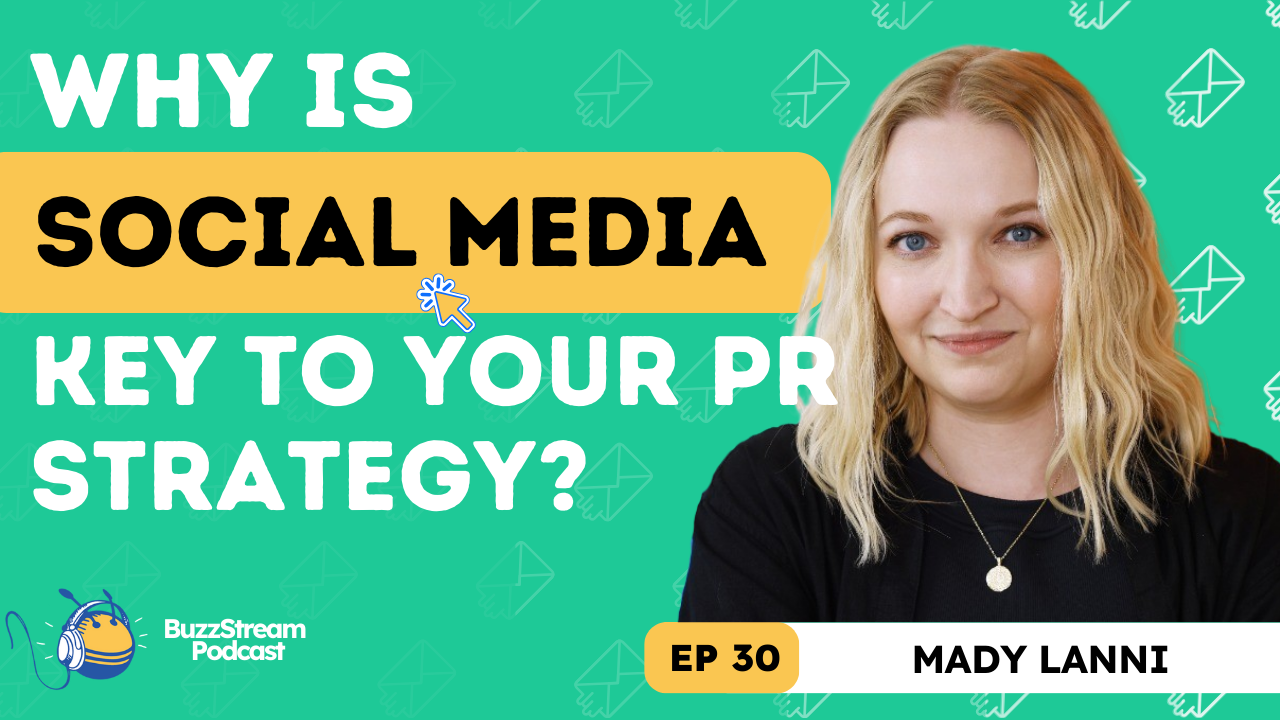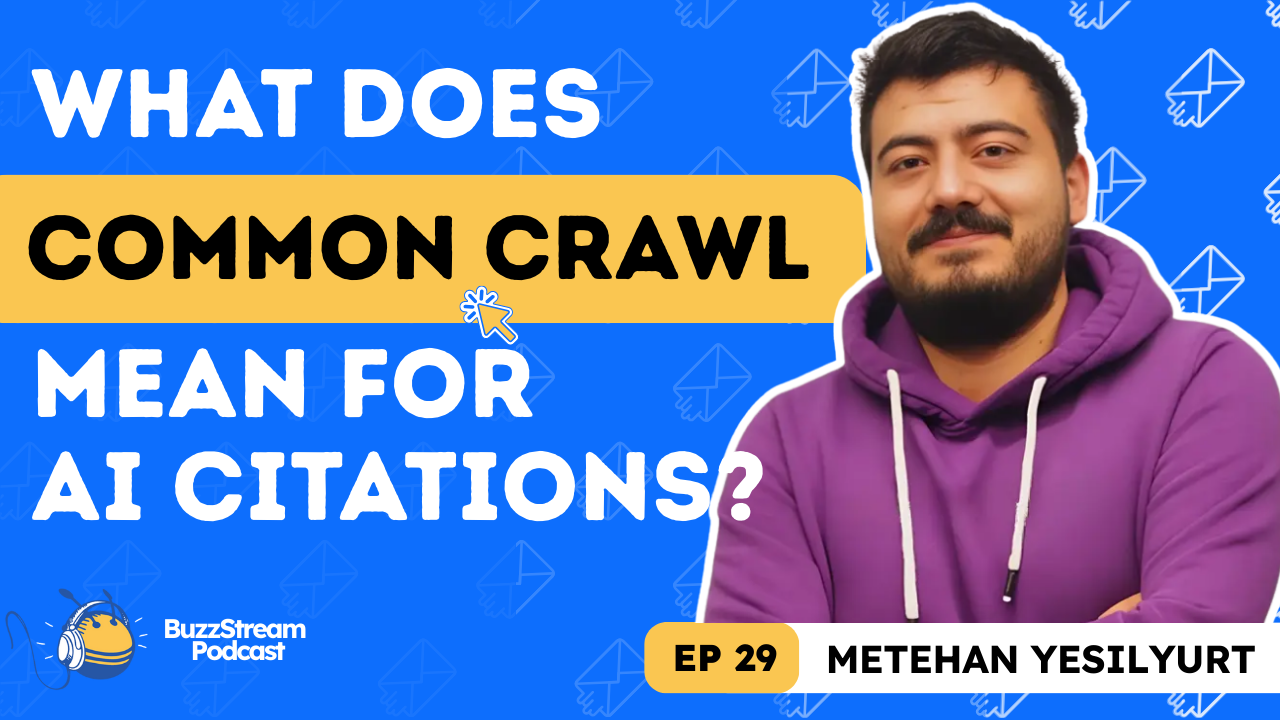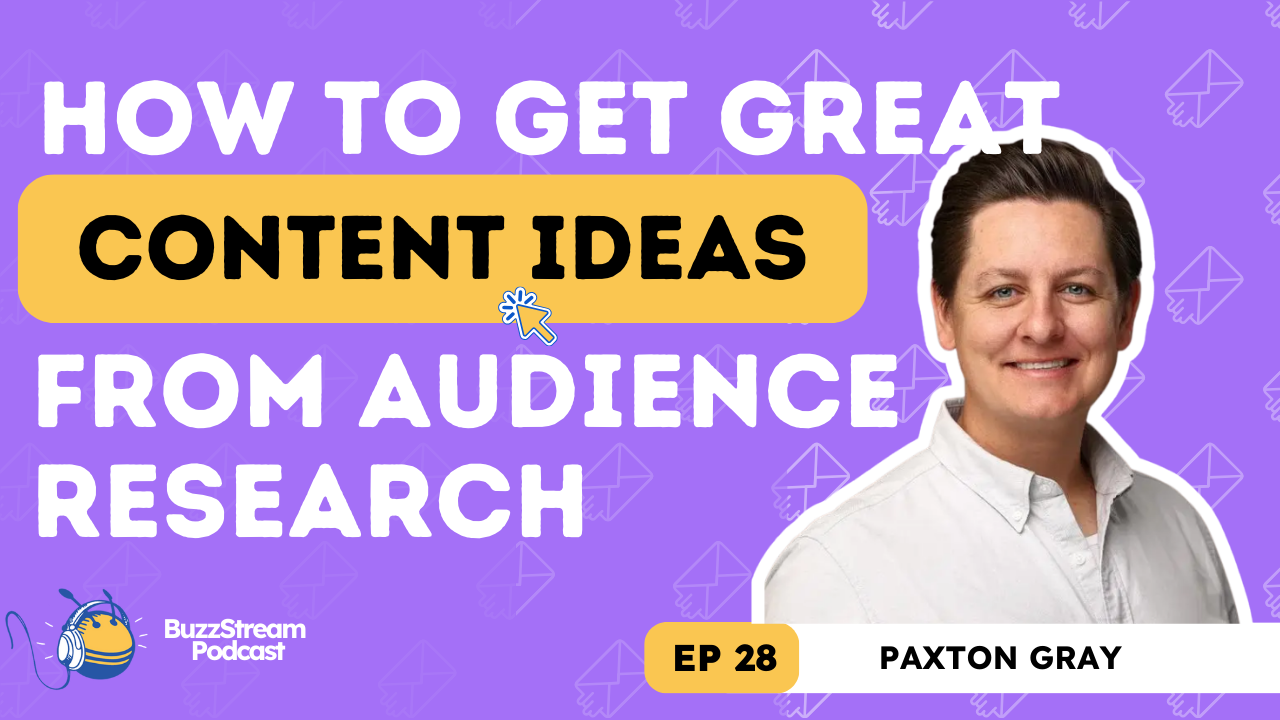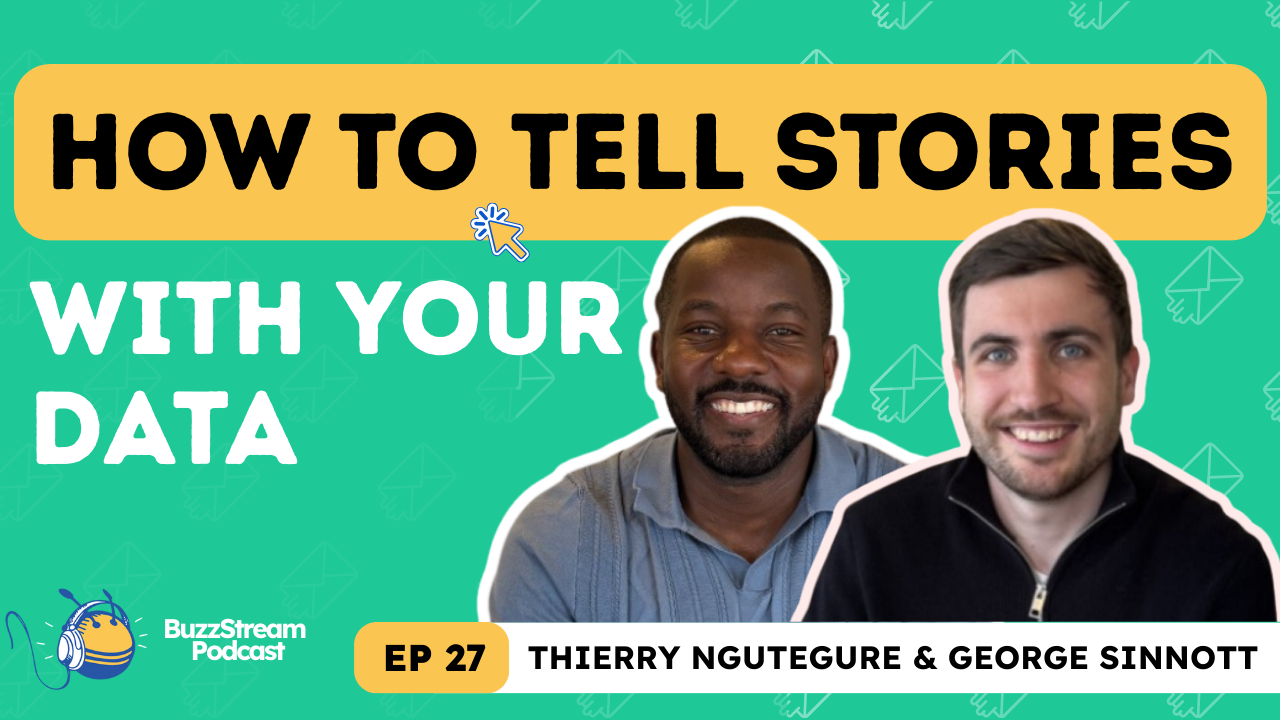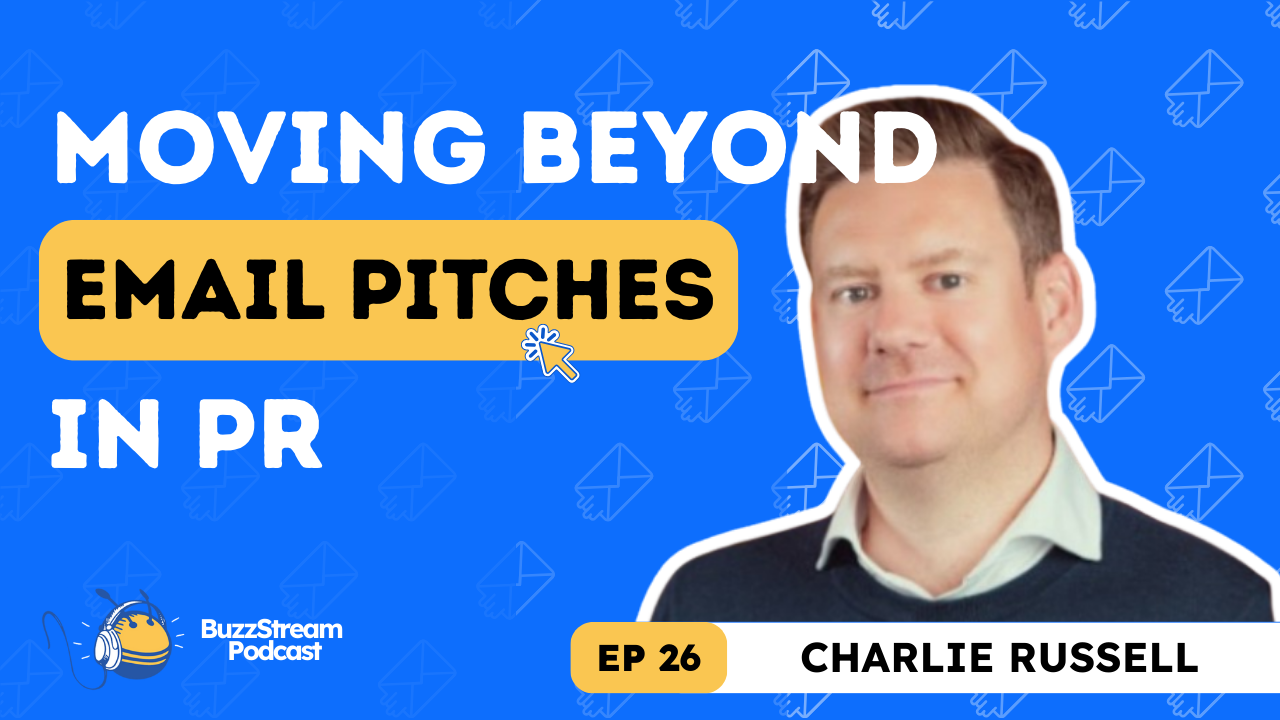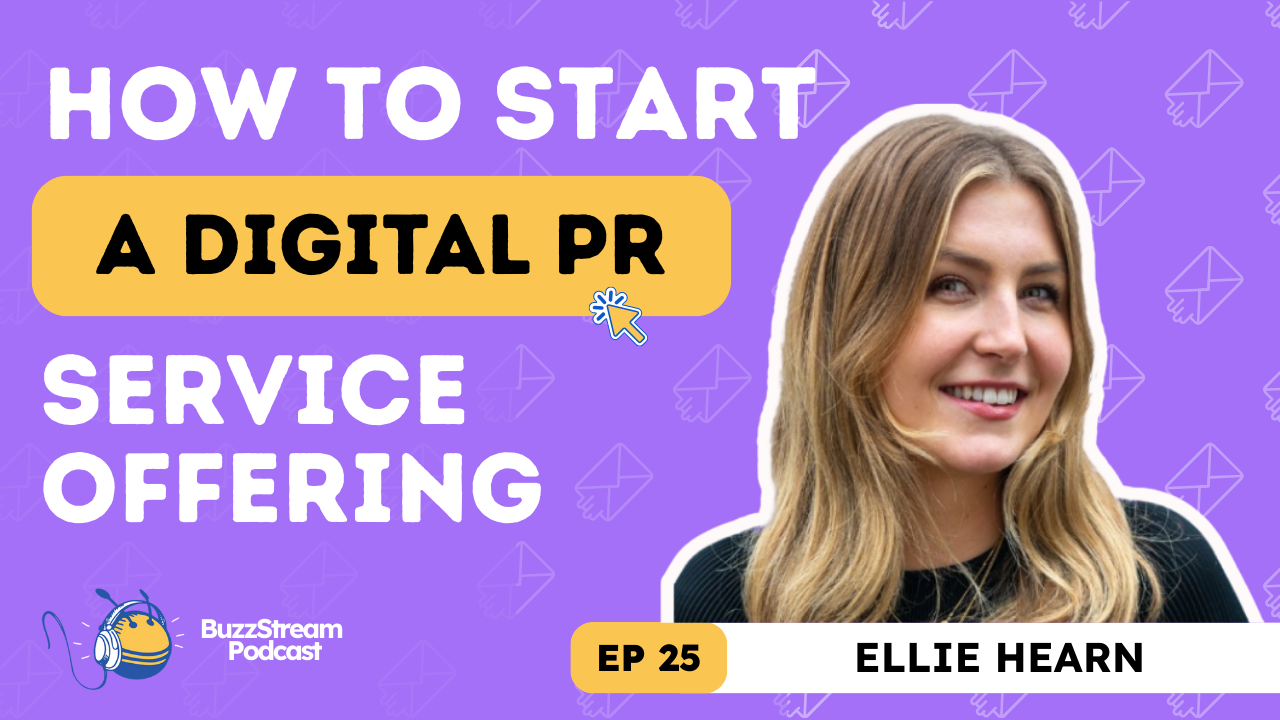Table of Contents
- AI has reshaped SEO strategy — brands must now optimize for visibility across LLMs, alternative platforms like TikTok, and Discover.
- Audience insight is foundational — successful SEO begins with understanding user pain points, platform behavior, and demand creation.
- Brand mentions outweigh backlinks — LLMs prioritize mentions over links; citations in high-authority content drive AI visibility.
- Big brands still hold SEO advantages — scale, homepage prominence, and internal promotion boost Discover and AI exposure.
- News SEO demands agility — real-time optimization, headline testing, and platform timing are critical during fast news cycles.
- Spam tactics work—for now — but Google and AI models are likely to shift toward trust-based signals from authoritative sources.
Aside from being the SEO Director at The Telegraph (yes that Telegraph), Harry Clarkson-Bennett, also has a fabulous newsletter called Leadership in SEO.
In July, he had a great take on building brands with SEO in the AI world which prompted me to reach out and invite him onto the podcast. It seems like everything I write about now has to have that qualifier of being in an AI era, AI world, or post AI but it’s true: AI has changed everything.
Even if many of the strategies are similar, there still needs to be a different thought process. In this episode, Harry really helps walk us through all of this. We discuss creating demand for a brand, differentiating yourself, and how brands need to stand out. We also get into some SEO topics, given that he does SEO for one of the top publishers in the UK.
(Selfishly, the other benefit of having Harry on the podcast is that he was able to share some secrets about how The Telegraph works.)
This one’s great for everyone.

How do you create demand for your brand?
Harry: I think it really depends on, like, what your brand is or who it is, right? But obviously, if you’re a publisher like us, it’s quite a different world too, if you’re an e-commerce brand that sells specific products. But ultimately, what we’re trying to do is build a product that really services our audience and solves a problem.
And I think to start wit,h whatever their main problem is. And it might be that they wanna feel like a real affiliation with someone as a publisher and be part of something. Or it might be that they have identified a product they need or something that gives them what they really desire.
But ultimately, I think it’s about solving a problem. And I think if you’re solving a problem, you really need to know who your audience is to understand what their problem will be. So there’s always been like you would do the user Sona stuff. And I always thought that stuff was interesting, but never.
That’s valuable. But I think there’s a good way of doing it where I’ve seen a couple of things on Miro and a couple of companies where they’ve talked about pain points and why the important thing or what you can do is to identify, like, yes, who they are, but what their main pain points are. So you can try and solve those.
And I think if you have that as a basis, like that’s an excellent starting point. And then it’s all about like, ’cause you could still create a really good product, but if no one finds it, it’s kind of like. It’s kind of pointless. So once you’ve got that, if you have a good product, you’ve established who your audience is.
I think then it’s about figuring out how to be, like, front and center. And do you remember? I’m sure you remember, do you remember like Google did that whole messy middle thing a few years ago and they’re like, oh, it’s tough to figure stuff out in the middle. Don’t worry about it. But now I think the middle’s pretty wild.
So I think now it’s really like. How well do you know your audience? How well do you know where they spend time on what platform? Like, basically, how can you influence them in the right place? And a lot of that is like, yes, like good organic social campaigns or maybe Reddit now has obviously got huge through search, but has always been pretty prominent for certain areas.
But now people like YouTube, TikTok, all the search engine alternatives now, possibly AI, depending on what you do in LLMs. So I really think that it’s like figuring out what platforms you need to be on. Testing and then testing. Maybe also just figuring out who already influences them, like you can build spark, I think, is a really cool tool for this.
Rand Fishkin, this new one, he’s been working. We’ve been using that for a while to build audience segments—where they spend time — and to look at advertising opportunities, and I think that’s been quite helpful in just framing how we should work and thinking about. I think SEO has always been kind of overvalued as a channel or certainly for the last like 10 years.
Like it’s always provided good last click attribution, ROI, ’cause that’s where people have gone once. They’ve kind of figured out what they want. To some extent, outside of the kind of comparison query, people find stuff anywhere now, right? So I think there’s a bit of a recentering most brands have to do, which is like, how do we really?
Figure out our audience and how do we figure out where they spend time and that’s where we need to be. So probably those four things, you’re probably on a, on a good path, I think.
Vince: Well, so you’re in a really interesting position in that you’re at a major publisher, news publisher, the Telegraph. You’re also the SEO guy there.
How different is the mindset for a big brand versus a small one?
Harry: So, like, big brands still have a huge advantage, obviously. I think the standard way that small brands can be big brands as if they’re like super agile. Particularly in the new, like, vibe-coded world of being able to build stuff and launch it quickly and test stuff, which I do, which I think is.
Really interesting, small, that’s where small brands can win if they’re fast and agile. But big brands are still like, like we get, you know, off the top my head I can tell you, but hundreds of thousands of monthly branded searches. You know, if you compare that to other huge publishers in the UK like the BBC or The Guardian, they’d get significantly more than that.
So you still, unlike you still have a major advantage, but people have had alternatives for quite a long time now. And I think it’s that kind of creator economy where people really trust individuals. So much more than they did. And news is a, as an industry, just direct news searches in Google has been declining for quite a long time.
And that’s not because people aren’t interested. If anything, people are like more interested in the consumption of information than ever. They just have so many alternatives. Like do you get all of your news from Google anymore? Going through that method, but probably not. People have individual accounts.
Could be TikTok, could be X, whatever. It’s gonna be like. People just have alternatives now. But I think the big brand advantage is still huge for us. That’s it, if you were launching something brand new, I think your way to market is still difficult. If we’re launching something brand new, it’s a little bit easier to get it out there and to get your name across.
And the same goes for any of those big publishers, so, or any big brand who’s launching this stuff. But I think if you do it right, there’s been a flattening of. If you understand how to grow a small brand quickly, there’s definitely been a flat thing of the difference in scalable size between those two types of brands.
Where is the Telegraph in the pecking order?
Harry: so BC is definitely number one. Then I suspect it’s probably the Guardian, but it could also be the Daily Mail and The Guardian.
All those brands are pretty big in America. The Daily Mail’s huge in America, but it really depends. Over the last few years, there’s been a fairly significant shift in terms of what brands rank for specific categories. So there’s probably a point before I was in news and publishing where. If you were a big brand, you’d be ranking for anything.
Like it doesn’t matter if it’s a political spot, everyone obviously has elements that they’re stronger on. But I think if you spoke to people across different publishers like the Sun, the Daily Mail, us Guarded, what people are able to rank for has definitely shifted over the last few years. And I know Google, the Google League and Google kind of scoring systems, and they have these maybe like baseline foundation metrics, you know, let’s say zero to one.
If you’re not above a certain threshold, then you won’t appear in top stories. For example, for a political work. There’s definitely been a shift in the way sites have been able to rank for certain things. I couldn’t speak exactly to what it was. Unfortunately, I wasn’t hearing that, those kinds of houses on days.
But um, yeah, there’s definitely been a shift, but I think like politically we’ve always been pretty strong and big major events. But like generally if you’re talking like celebrity stuff, it would be the Daily Mail. If you’re talking just huge widespread news consumption, B, B, C as like the license fee, payout payer channel or brand is definitely the strongest in the Guardian, I would say are probably the biggest ones.
how is the Telegraph providing value to its customers?
Harry: It’s such a, such a good question, right?
Because what I’ve always thought or how I’ve always tried to create value with content.
Specifically, let’s say, I think there’s two strands to this.
We focus on the content side and the technical side.
The content side of things for me is all about, okay, once you have, let’s say, everybody can structure an article pretty effectively, which is not entirely true, but like as long as you understand how to structure an article effectively to make sure that it’s easy for people to consume, it’s easy for bots to consume.
You are on a good path already.
On top of that, I think you consider stuff like information game.
And the uniqueness of content and how we could, like, how can we add value?
And adding value is a understanding our audience.
So everybody has access to the same keywords, the same tools, the same FAQs, whatever that might be.
But I think the way you can differentiate yourself slightly is to understand your audience and figure out which of those queries are gonna be most applicable to them.
And for big publishers, obviously, you have pretty different audiences for specific areas.
Like, our product review stuff isn’t behind a paywall, so that’s like a bigger, broader audience.
So we have to have a slightly different approach there than in other areas.
So if you can structure your article effectively, if you understand your audience well enough to know what queries you should be answering, and at like a really basic level.
For us, you’re kind of seen as a premium publisher for a slightly more affluent audience, which means that you might be able to tailor your context somewhat based on that.
We’re also a publisher who is right of center, which means you might be able to tailor your queries or questions to that type of audience. So really then it’s about knowing your audience. Then it’s about the information gain side of things and how can you add unique value, and I think a lot of that comes down to.
Like being quite canny like we have an audience team internally.
We have a community team where we have hundreds of thousands of subscribers. We have access to such a huge amount of data that we’ve done some really good stuff. Some of that is like did an article on the best inset providers.
So you can just do a survey of our audience to figure out, okay, who do they use?
How satisfied are they?
How can we bring this to like, not many other people have access.
Not many other publishers have access to that level of information.
It’s really about making use of what you have.
So we do, we try and do quite a lot of stuff like that where possible, and then we try and leverage things like comments, internal site searches, like to figure out what our audience is saying and to try and bring that to the fore to just make, to just have something a bit different because particularly with everything that’s happened over the last couple of years, not that difficult to spin out sort of possible informational content.
So for us it’s about being like, right, how do we take it to a level where. People won’t pay for it directly, but they might register, but it might drive a significant enough amount of traffic.
And I think that’s, that’s where we have to be good and where we’re probably judged more harshly and rightly so. And then there’s the, uh, the kind of technical side of things where it’s like, how do we make our site faster? How do we make it more efficient? How do we make things, how do we make ourselves stand out as just like a premium experience?
With all the kind of EEAT metrics and authorship and everything that comes with that by being like, how do we shout about who we’re and what we’re good at?
Does the Telegraph need to promote its content much?
Harry: So, absolutely. And like interestingly, a used car dealership is quite, quite a cool comparison. I do.
Because it sort of plays into earlier what you discussed about like you have to build this giant audience.
And I used car dealership as like you probably have quite a specific local audience who have quite specific local needs.
So you don’t need millions of data points to be able to craft something.
That’s a kind of interesting story for people who live in like a tiny place in the middle of nowhere, arbitrarily.
So, like, again, knowing your brand and your audience doesn’t have to be fancy—like, not about collecting data or trying to create something a bit different.
It’s like standing out is the end goal for everybody here. Which I think for publishers means that everybody gets more opinionated.
Like, I think what we’ll probably see if we’re not already is that everybody goes a little bit further away from the center, because you kind of have to have a voice to survive, and then you lean further and further into your like maybe harder audience, because that’s maybe where the money is.
So I think that’s quite an interesting thing that’s been happening or will happen.
And in terms of the promotional side of things, sticking stuff high up on our homepage.
When you’re a big publisher, it absolutely has a big impact on search and discovery.
And I would say that it’s like the prominence of your link on a big homepage. You know, it just crawled every few seconds. Obviously, if you put your big story up there, it’s gonna be your biggest story.
And that’s because if we just talk in search terms, Chrome gets a ton more information about clicks and user engagement behavior really quickly.
And I think the way Discover works, or a specific theory, is that, uh, obviously, Discover’s huge for publishers now.
But the big part of the way it works is like taking a, let’s say like a statistical performance, like a Bayesian model of performance where you’re able to sit there and be like, this is, there’s an expectation of each article, maybe based on the sub folder it’s in, or the brand it works for, the brand it sits under.
It’s not that difficult for Google to predict what this article should do.
So if you can force that article to overperform in the first 10, 20, 30 minutes, IE, high up on the homepage, you push up your social channels, you stick it in a newsletter.
I think that’s an excellent indicator for Google in its algorithm that it has a chance to go viral, so it’s more likely to be put on a viral platform, like Discover.
That’s obviously like a bit of a theory, but I do think that’s pretty much how Discover Works is, as more of a social-type algorithm, and it’s much more click-based.
But definitely, for most people, they want to work with or link to the Telegraph.
Similarly, with the BBC or the Guardian, and although it’s much easier for us, it’s obviously much easier for them as well.
So it’s, it’s so much easier, but it’s also you’re competing against much bigger fish.
What’s the value of a backlink if you want to show up in AI?
Harry: So I think the first, the first port of call, I suppose, like figuring out whether it’s valuable for you to show up in AI, and like right now for us, there is basically, no value.
And I think that’s probably the same for most publishers.
Not everybody, but for most — particularly publishers who rely on subscriptions and/or advertising, which is basically everybody —it’s that these platforms don’t send traffic; they’re not designed to send traffic, which makes it a bit challenging to generate, particularly advertising revenue.
And if it’s subscription revenue, then what people would say is, like, oh, but it’s essential to be visible as part of the corpus or whatever, maybe.
But nobody cares about that, and you can’t really track that very well, despite what people who have AI prompt trackers will tell you. I don’t know.
I’ve tried using it. I don’t think it’s that helpful, but I’m aware that’s definitely true. I’m only speaking for publishers here, so that’s kind of different if you’re an e-commerce brand.
I do think it’s different for sure, but in terms of the value of a link, yeah, I think, I think the link has sort of followed like.
There was a point when it was probably still the most critical trust signal, in all honesty, for getting people to talk about and cite your brand.
And I think just generally the mention of your brand with the right basic level, with the right keywords, either side of it’s pretty helpful.
So I think the value of a link has indeed declined over time.
Still, I do think it’s having something of a Renaissance in terms of like digital PR and big scale campaigns will be huge and like you can see already with how AI or how LLMs give answers is that they really do use the, like they’re quite spam in that you can really, if you just get featured in like any top 10 list for the best agencies or whatever it might be, you’re pretty likely to get featured in there.
Will Reynolds has interactive. Does some really cool stuff. They did a really good thing about, like, it was a test of, they put some, basically just some words, in the footer. They ran two things, so they, they were like, okay, our agency does a lot of work in the finance and banking industry. So they did like case studies, interviews, spoke at specific events, talked about all this stuff, but then also just put like eight words in their footer about what they did.
And nothing else was mentioned in LLMs.
But those, the footer stuff was picked up in like 12 hours, and he was like, yeah, I mean.
So I think we’re, we are not ready for like good quality SEO for this stuff yet. It’s kind of, it’s kind of old school in terms of how these things work, which makes sense.
But I think the value is less about the link.
Obviously, you want the link for search purposes to drive referral traffic to be relevant. You still need that. But I think the value is more about being cited, being talked about, being mentioned in the right publications. Like I think that’s still. The most valuable thing, which I believe it has been for a while.
How long will the spammy tactics that people are using to show up in AI work?
Harry: So I actually think maybe you follow Dan Petrovich on LinkedIn a bit. So, he’s really funny, and the stuff he does is super cool. But I, he basically just wrote an article about. And it was just about the latest version GPT 5, which was basically that it has stopped training on prior data.
So up to September 2024, whenever it was, that was the cutoff. And after that, as I look, we basically consumed everything. Now, this is really expensive, and shock horror brands are pretty pissed off that you’ve been stealing content and using it to train your models and then basically exploiting companies for it.
So the reason I bring that up is that they will probably use the Google search Index. We’re already using Bing. I think the role of SEO is still just to get, make sure you are ranking pretty high up., ’cause I’m sure that using ad index is a far more sensible way of doing things.
And Google is actually, recently, Google really sucks with spam, but it’s still way better with spam than LLMs. And probably the reason why Google. Pretty crappy with spam at the minute is people just got so good at abusing it. So I, I do appreciate that. It’s difficult, but I do think they’ve kind of given up a bit, and they’re investing so much more into AI that, like, the spam updates are just a bit more like whatever.
So I guess I imagine they’ll get a handle on it in the future, and I think absolutely it’ll be a bit of a spammy problem for a while. But I wonder if the way around it is actually that there’s just a better integration with search engines that just have a much better way of handling spam. And that kind of filters out a lot of the nonsense that might happen.
So maybe just featuring on these, like featuring in better quality pages, is going to be the way forward. So yeah, I think you’re right. Like the kind of elevator and stairs option, maybe the elevator at the top has quite a hot ceiling, but once you reach that, you really wanna get out before it hits that point, because I’m sure that will happen.
And like most of us, I don’t have the option of. You talked about.
I talked about it, but you also talked about it on like black, black, and gray hat techniques. And that’s definitely the one regret I have of my SEO career so far, is that I’ve not really got into that. And obviously, as with a brand, when you work for big brands, that’s not an option.
If you work for an agency, you just don’t have these options.
Like you can’t really fuck around, you remember the fuck around, find out growth that that guy does, where it’s just like. There’s a point on the graph where it’s like, you know, you probably don’t want to get here because at some point you’ll find out.
Um, well, we’re seeing a lot of that, too, lately.
It’s super interesting and you can see, like, you can see how badly it’s been abused over the years and working in, so the industries where this is most prominent are the industries where there’s the most money to make. And that’s like iGaming, gambling, casino, that type of stuff. Where frankly they’re like, who knew people like Tibet, right? Turns out they’ve really liked to bet, and people really like gambling.
Um, those industries are aware that, like the people who are just unbelievably good at this stuff, are so, and I notice it if I, if you search for like. At any point over the last few months, when I’ve searched for like Best Casino, something like some, some variations on that you will inevitably find, it’ll be like Hong Kong embassy org cranking, like position seven with a one-page site.
Somebody’s bought and just spun like the best casino websites for Exxon. And there are people just building, just constantly building. It’s like private blog networks that match domains. They just have, like, this year, they just built because if you have one thing, like you can’t be reliant on. A single site for this, but some of these sites make like $10,000 a day from what I understand, from uh, just ranking for like a few specific terms.
So, actually, if you can just build something by an authoritative domain, spin it and turn it pretty quickly, even if you only get a few months out of it, it can be so profitable that it’s just kind of worth it. So it’s an exciting industry and not one I know much about, but when I am pretty shady, there’s, um, a garment clinic called Timothy Malus.
Something he did a fascinating look into. I probably won’t name the company ’cause I think there’s a lawsuit at the moment, but he did. He did a fascinating look into an iGaming and casino affiliate company, and like the dirty nexus of stuff that goes on, that is wild. Like wild, wild. So yeah, it’s interesting.
That’s definitely an area I’d like to get more into.
Right now, Google doesn’t care about this stuff.
They have bigger fish to fry. It’s AI robust.
So it’s like, I understand why I disagree with it because they’ve just done such a bad job of dealing with it recently. But I, I do appreciate, it’s probably pretty difficult, um, to be able to manage and people are really fucking good at dealing with this stuff.
So, like I said, they’ll be, they’ll have hundreds of sites. You can afford to lose 20, 30, 40% of them. You know it’s gonna happen. But you can spin this stuff; you keep doing it. And like there, there’ll be people with such valuable assets, which is super, super interesting in that world. That’s why. But I do really like it, but I agree.
It’s like there’s an algorithm. If you are smart, if you’re a brilliant mathematician, you are a good statistically, people figure out how to reverse engineer this stuff. You have a bit of a playbook, and you just go for it, and then you just iterate on it slightly every year. There are some interesting people I follow, a guy called Charles Float.
Found recently in the industry for long, from what I know.
Do you think it matters more to show up in AI to get links from these big publishers?
Harry: Does it matter more?
I don’t know. I couldn’t tell you for sure. I suspect it on the balance of things. Because it’s another area that still has value in search. It does have some value in AI to something, to what extent. It’s difficult to tell, but, like I said, becoming a bigger, more trusted entity is significant.
And uh, I wrote a newsletter about, um, Google has a patent about how it scores evergreen articles.
It’s, it’s, it’s super interesting and lots of this stuff. It’s not like mind-blowing. It’s probably what people generally expect, but the important thing for most things is like link acquisition over time, and there being like a steady link velocity from high-quality sites over time.
So there’s like one-off big spikes and not that important. So. Obviously it’s great if you get people to see who you are and understand your brand. Still, actually, if you’re just having singular spikes, you really need to figure out a way to be able to have those kind of hero pieces of of PR work or digital PR work that do give you those big spikes and give you more exposure to people.
But you really need to figure out a way to create content that people just naturally link to over time. And I think for PRs and big publishers, there’s probably not a huge shift in like how to go about doing things. I think the most. The most interesting things that I’ve, since I’ve come here have been initially like people’s reluctance actually to link to stuff, which has always, I’m like, it’s kind of like with links being kind of the backbone of the internet, so to speak, the open web.
I always found it quite strange that people were really reluctant to link.
I think that’s, it’s not just us, right? I think that’s been the case for many publishers.
Press Gazette did a study on it last year, and we did not score well, but there were three or four worse than us, and one of the ones that were worse than us was messaging me to ask for a link, saying it was unreasonable for us not to link. I was like, well, you can’t do that after I’ve seen that you’re worse than us.
Like, we’re bad. Don’t. I think there’s just been like some pretty bad SEO advice that’s gone out in the industry over the years and it’s like perpetuated where people think it’s kind of like people think you lose page rank if you link out to another website. That was a bit like, right, and it wouldn’t have been expressed like that, but it was like they think it makes our page less valuable if, if we’re referencing someone’s work or something that they’ve done, just link to them.
It’s like, it’s like manners, right? And like you, they’ve done the hard work just like what they’re doing. This isn’t a big, so that’s been an interesting shift. And I do think it’s, I do think the link is less important than it was, and I do feel, like the general mentioned, and being cited in the right place is still essential.
Publishers still have big publishing targets. They still need stories. I think if you are, if you’re in PR and you work in pr, the fundamentals of what that looks like hasn’t changed in terms of making it easy for publishers to link to certain things. But I mean, AI is indeed like the world’s biggest buzzword and it certainly makes your job if you use it well.
Easier, and I’m pretty sure for PR there must be some fantastic things that you can do with AI generally to make your life a little bit fresher.
Do you feel any of the drop in reply rates that the PR side is feeling?
Harry: So, no, not really. Only because. Basically, the only people who message me about this stuff are other publishers. So it’s basically other publishers being like, Why, why didn’t you link to our thing? We all do like hundreds of stories a day. Everybody, I don’t know how we track, uh, we do track the pattern of publishing volumes, and there was one, there are a couple of sites in India that everybody’s been like, how the fuck are these guys doing?
How are they doing well in the uk? And we found out, they were just like, oh, we just spin the stories up with AI, and they were doing like 25,000 stories a month or something like that. And the rest of us are like, you know, 1, 2, 300 a day, however many it’s in the UK—something like that. But I don’t, I don’t really feel it.
And I think we’ve made strides in being like, ‘please link two people.’ But I would, yeah. I’m surprised if that’s Yeah. Maybe a little bit surprised that that’s in that that’s what people are feeling.
So it basically hasn’t come across my desk.
Has the Telegraph been feeling any redundancies?
Harry: No, but we are going through a sale process at the moment, so right. Who knows? We shall, we shall see, but yeah, hopefully not. But we are, in fairness, a big subscription paper that is in a pretty healthy position, so I’ve been led to believe.
So, right. Who knows? But I, that’s in fairness. That’s a perfect point. And maybe it’s in terms of PR and reducing, like I know Rick just happened to reach, there are a couple of other publications that have lost out quite significantly. Maybe it’s just fallen down the pecking order a little bit in terms of what people care about and are interested in.
But I would’ve thought we’d like news about the need for stories and the constant desire to do more. I’m surprised, like, I dunno, maybe pitching just needs to get even better.
Vince: I mean, I think that’s the thing. There’s a little bit of that, like people reaching out to the wrong people all the time.
You know, you’re casting a wider net than you should be. Mm-hmm. There are false ideas about how many links you need to get, and the focus is still on volume and not, you know, quality versus quantity. But the other thing I guess is like, I mean, so the journalist layoff thing is adding, oh, the influx of people.
Getting into digital pr, like I think there’s a lot of kind of like link builder mindset of people kind of coming over and being like, oh, I can do this. You know? And they use the same kind of tactics that they use for blogger outreach or for whatever. I mean, the same kind of stuff you’re getting, probably that doesn’t, you can’t really do that with a journalist.
Harry: No. Yeah, you, I think it’s, this is definitely not changed. If anything, this is probably more important than ever, but it’s always about. The story, selling the story well, and making it easy for somebody to be like, Oh, thank Christ. Like, we’re not a high-volume publisher. But if you’re pitching to a high volume publisher who some people might be doing, like, I dunno, 5, 6, 7, 8 articles a day individually, you really need to make their life easy and understand what it is.
So for us, it might be a bit different, but I do think there is. It’s like I’ve been saying about understanding our audience. Well, like the digital PRS audience, in this sense, is the journalists or the publication. So like having a really clear idea about how many articles they have to do a day, what those articles are like, what articles do well for them in terms of traffic or subs because of their audience, like understanding who they are and who the publication is.
It’s still, I think, the number one thing for PRS to go. That’s how I can craft something really sellable. But you’re right, it’s quality over quantity and the kind of link building. The link building bullshit. Just numbers, quantity, just like, please link to my, it’s like it’s got, it’s gotta be better of all the, of all the times to like really figure out how to sell.
It’s definitely now, and that’s not a shot at any like digital prs really hard, but really cool. It was one of my favorite, my favorite areas to work with in a place I used to work. We had a digital party, which is a bit of fun in the SE and publishing industry, like get a link, ring the gong, go for a bit, which was good fun.
Enjoyed it.
Do you feel that as an SEO, crazy news cycles make your job harder or easier?
Harry: I think both of those things are true, right? In that, so the way I set the team up here is that you have, like, news, SEO is so different from normal SEO, which is like news, SEO, evergreen, SEO, technical, SEO.
But they’re all wildly different in terms of what they do and what type of person they need. So having that split in the team is quite helpful. When the news gets crazy, what we’re the team are like. We’re optimizing quickly for individual things, uh, like figuring out what stories are gonna do well, what are the spinoff stories?
How do we make sure that the right articles are featured in the right places? The headlines are good before they go live. Once it’s gone live’s out there, it’s a bit late. In lots of cases, Google might not crawl their headline again, so it’s like, this is where we are with this stuff. So that’s almost like the front line of when things get a bit, when things get a bit wild.
So it’s like on the election night over here. It was just like, alright, so are you gonna be working all night? And I was like, am I you? What? I’m, what do you mean? They’re like, oh, most of the time they’ll do like, you know, work till like six in the morning till six in the morning. You gotta be joking. They go made it to that forum, like, I gotta go home and feel sick.
So it definitely does change, uh, our team and how people are able to work. And obviously stress levels are higher. But I suspect there’s just like, it’s kind of like an understanding because I still think the same applies an understanding of the paper, the publisher, the stories of what’s happening. But like I said, news means that you might have the best intentions in the world.
You might create a really cool story. It might be all out the window within 10 minutes because like something crazy’s happened, like what’s happened in America the last couple of days. So yeah, I, we do feel it, but I think as like an internal, somewhat internal. You probably don’t, you definitely don’t feel it as much in terms of getting our stuff pushed through like digital PR might do, but yeah, maybe there’s something about being canny about who you can target and how you target them, what the angle is.
The angle for us would be pretty different if you pitched someone in my team, in the SEO team versus like somebody who’s in charge of publishing on the desk and think having an understanding of how those, how publishers are structured so you can get your story through like, I’m sure most of this is still run on relationships one way or another, but then if you have an understanding of.
Who the decision makers are definitely easier to get a story pushed through.
How does a site like The Telegraph run its news desks?
Harry: I couldn’t tell you other publishers, but I can give you a broad overview roughly of like how these things tend to work.
Whereas there’s obviously a split of desks. So there’s like news teams, sports teams, whatever that might be in terms of the category of content that they work under. But then there’s, there’s like commissioners, publishers that there’d be some, one of those two who’d be in charge of the whole desk and who’s in charge of all the stories that go out throughout the day.
So there’d be someone on each desk who’s like the key decision maker to say yes or no. And someone will bring them stories, they’ll get pitched maybe. 10, 20, 30, 40 stories a day, whichever desk they work on. And then it’s up to them to then go, we’re doing this, we’re doing this, this is what this will look like.
Um, I think figuring out like whose role is, who is the commissioner, who’s the publisher, who is somebody writing the article? ’cause some of the pitches probably make more sense to go to like a specific journalist who’s writing something. In contrast, others are really going directly to a commissioner or to a publisher.
But it’s quite convoluted. And I’ve been here for three and a half years, just over. Been in the editorial section for, actually, I couldn’t tell you how long, I still don’t get exactly how things are structured. There are a lot of editors, managing editors, like there are a lot of different people who, it does get quite confusing.
But I think if you try and figure that out, you get, I don’t get pitched now. No one pitches to me, it’s a sad, lonely world up here in s Well, I was gonna say, I good.
And then thinking about this, if you were pitching to an SEO, what you’d be pitching to them is like, it’s kind of like, it’d be quite a boring, straight story I suspect.
So, unless you can try and make that a bit jazzy and a bit interesting. Lik,e explainers are not normally the sort of sexiness of digital pr. I imagine that’s a hard sell. So that, that would, if someone was pitching us quite regularly, I, you’d have to sit there and be like, it’s probably not the right, it’s probably not the right ball game.

 End-to-end outreach workflow
End-to-end outreach workflow


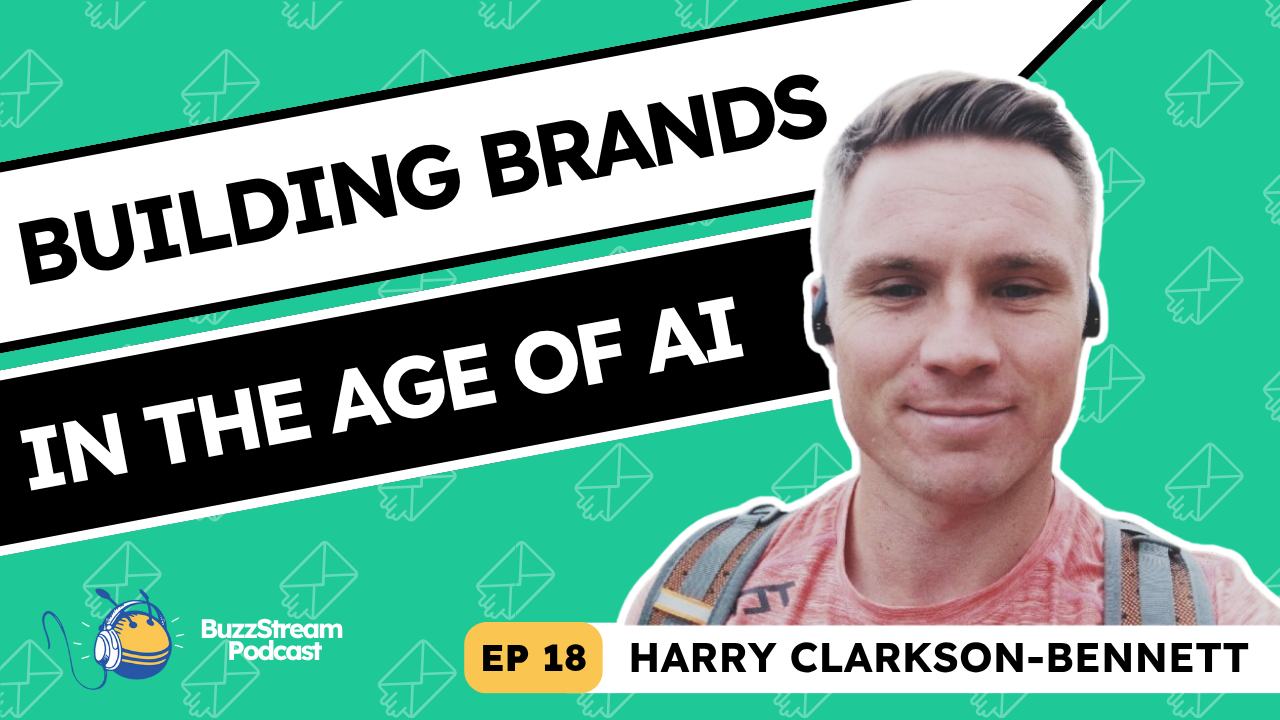
 Check out the BuzzStream Podcast
Check out the BuzzStream Podcast

